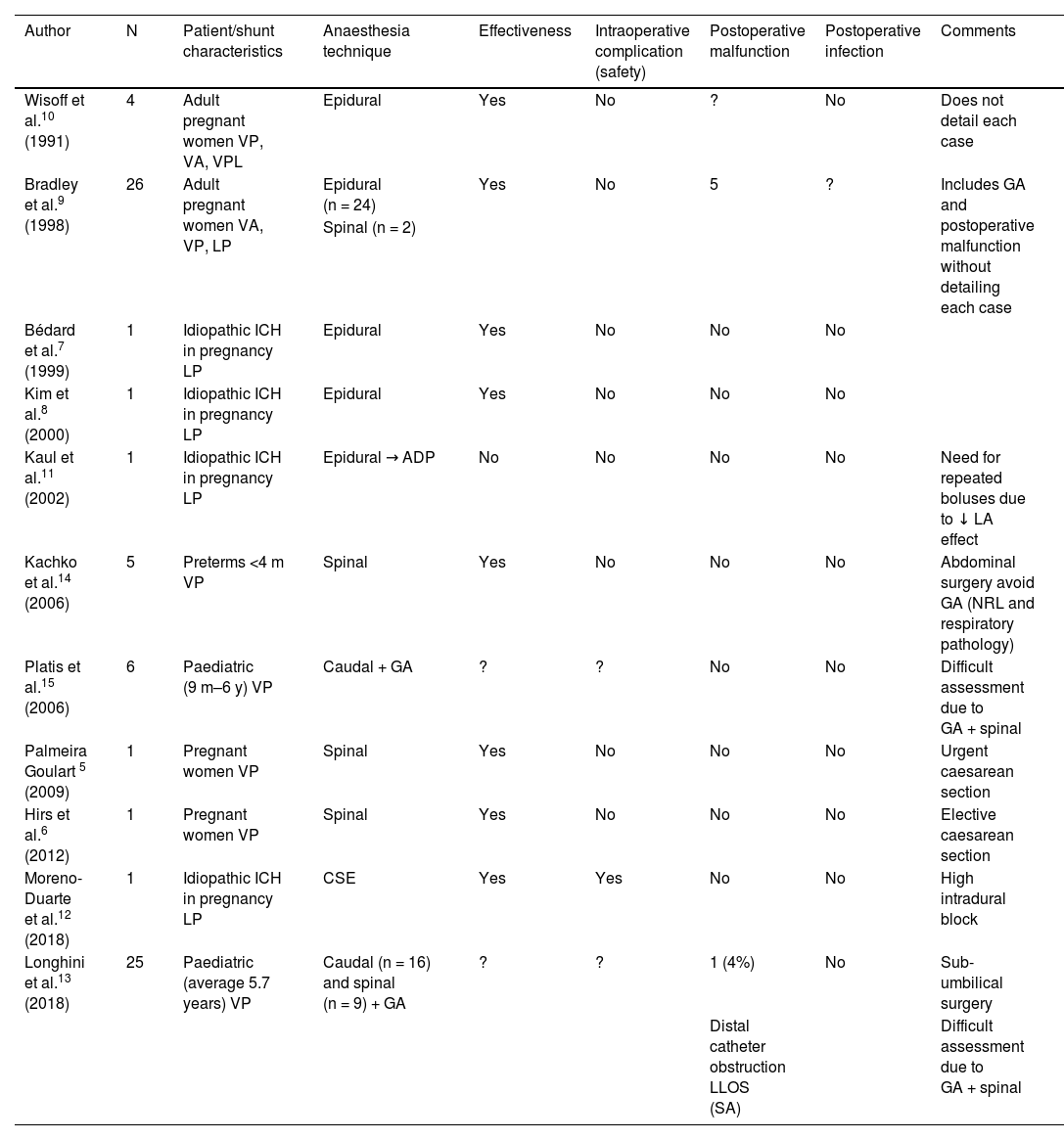Neuraxial anesthesia in patients with cerebrospinal fluid (CSF) shunt devices has traditionally been associated with a high risk of complications. In order to gather all available evidence, a structured search was conducted to include published studies involving users of these devices, undergoing any form of neuraxial technique for obstetric or surgical procedures unrelated to them. Effectiveness of the technique and perioperative complications were assessed. Only case series and case reports (n = 72) were identified. One patient was found to have insufficient anesthetic coverage, necessitating a modification of the technique, and another one had an intraoperative complication which compromised the subject’s safety. No infection events or postoperative device dysfunction related to the anesthetic method were described. The evidence found is scarce and of low quality, preventing the establishment of significant conclusions. Nevertheless, patients may obtain benefit from an individualized evaluation.
La anestesia neuroaxial en pacientes portadores de dispositivos de derivación de líquido cefalorraquídeo (LCR) se ha asociado clásicamente a un alto riesgo de complicaciones. Con el fin de recabar toda la evidencia disponible, se realizó una búsqueda estructurada de los trabajos publicados en usuarios portadores de estos dispositivos, sometidos a algún tipo de técnica neuroaxial para procedimientos obstétricos o quirúrgicos no relacionados con el mismo, valorando la eficacia de la técnica y las complicaciones perioperatorias. Solo se encontraron series de casos y casos clínicos (n = 72). Se identificó uno de insuficiente cobertura anestésica, que precisó una modificación de la técnica, así como una complicación intraoperatoria con compromiso de seguridad para el sujeto. No se describió ningún caso de infección ni disfunciones posoperatorias del dispositivo relacionadas con el método anestésico. La evidencia hallada es escasa y de baja calidad, lo que no permite establecer conclusiones significativas, aunque los pacientes podrían beneficiarse de una valoración individualizada.








